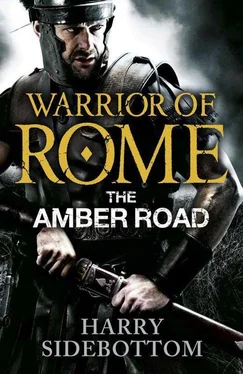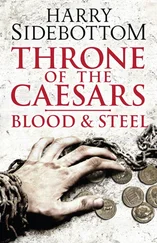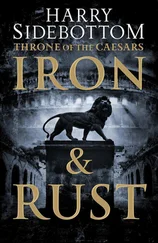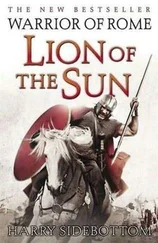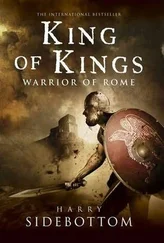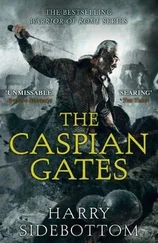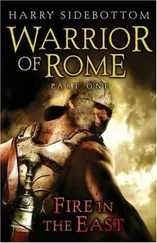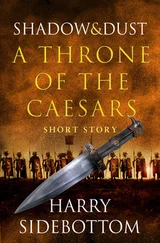Harry Sidebottom - The Amber Road
Здесь есть возможность читать онлайн «Harry Sidebottom - The Amber Road» весь текст электронной книги совершенно бесплатно (целиком полную версию без сокращений). В некоторых случаях можно слушать аудио, скачать через торрент в формате fb2 и присутствует краткое содержание. Год выпуска: 2013, ISBN: 2013, Издательство: Penguin Books Ltd, Жанр: Исторические приключения, на английском языке. Описание произведения, (предисловие) а так же отзывы посетителей доступны на портале библиотеки ЛибКат.
- Название:The Amber Road
- Автор:
- Издательство:Penguin Books Ltd
- Жанр:
- Год:2013
- ISBN:9780141935287
- Рейтинг книги:5 / 5. Голосов: 1
-
Избранное:Добавить в избранное
- Отзывы:
-
Ваша оценка:
- 100
- 1
- 2
- 3
- 4
- 5
The Amber Road: краткое содержание, описание и аннотация
Предлагаем к чтению аннотацию, описание, краткое содержание или предисловие (зависит от того, что написал сам автор книги «The Amber Road»). Если вы не нашли необходимую информацию о книге — напишите в комментариях, мы постараемся отыскать её.
The Amber Road — читать онлайн бесплатно полную книгу (весь текст) целиком
Ниже представлен текст книги, разбитый по страницам. Система сохранения места последней прочитанной страницы, позволяет с удобством читать онлайн бесплатно книгу «The Amber Road», без необходимости каждый раз заново искать на чём Вы остановились. Поставьте закладку, и сможете в любой момент перейти на страницу, на которой закончили чтение.
Интервал:
Закладка:
‘ Dominus .’ Tacitus obviously thought the moment auspicious.
Graciously, Gallienus said his friend should speak what was on his mind. Tacitus’s lined face, never a canvas of levity, took on a cast of deep profundity, and he launched into his considered discourse.
No one, Gallienus thought, with the exception of an intellectual at the Alexandrian Museum or an habitué of the schools of philosophers or sophists, could have the experience of an emperor in appearing to listen intently to speeches while thinking of something completely different. Gallienus knew what Tacitus would say. This foreknowledge was nothing to do with the frumentarii . The arguments against Platonopolis had been rehearsed on many occasions in many forms.
Advancing one school of philosophy would alienate all the others. While the tenets of none necessarily led to opposition to monarchy, often they had provided moral underpinning to men contemplating assassination of a ruler. Brutus had been a Stoic, Cassius an Epicurean, and Caesar had died. Less drastic, but possibly more damaging in the long run — the gods would foil any insane attempt on the life of the princeps — intellectuals shaped public opinion. The speeches and writings of philosophers might deform the image of the glorious reign of Gallienus. Street-corner Cynics were ever ready to howl against even the best of emperors.
‘What of this place itself?’
The rhetorical question brought Gallienus back to his surroundings.
‘The Pythagoreans came here seeking enlightenment, but ended mired in foul superstition and lust for temporal power. It puts one in mind of Cicero’s speech against the proposal of Rullus to settle men at Capua. The land there is luxurious, it made men who dwelt there the same, and that made them enemies of Rome.’
Gallienus smiled in recognition of the novelty of this cultured argument. Those among the traditional elite who sneered at the military men from the Danube were fools. The family of Tacitus had owned wide estates time out of mind; many of his compatriots were rougher — Aurelian Hand-to-Steel , for one. But the thing that united these hard men from the north was their reverence for the traditions of Rome. In many ways they were closer to the mos maiorum than the pampered and plucked rich who were born in marble palaces on the seven hills or opulent villas on the Bay of Naples.
Tacitus had moved on to finances. Gallienus was well aware what this would entail. Plotinus had vastly underestimated the true cost. If building were to be undertaken, better the emperor’s own plan for a portico along the Via Flaminia. Unlike this out-of-the-way spot in the Apennines, it would provide work for the always restless plebs of Rome.
Tacitus was bound to end with the argument that, in these days of usurpation and barbarian assault, money was better spent on the army. The safety of the imperium must take precedence over everything in these days of iron and rust.
At the thought, Gallienus felt his skin tighten. There was a new clarity to the light; faint music among the trees. He knew Hercules, his divine companion, was with him. The deity reached into Gallienus’s soul, drew it out of his body.
Wrapped safe in the skin of the Nemean lion, Gallienus was lifted through the air. Past the heights of the Apennines, he was carried north. Higher and yet higher, until his divine friend set him lightly on the utmost peak of the Alps. From there they gazed down on all the land and all the sea. Hercules laid his hands on them, as one might an instrument capable of playing all modes, and under his fingers they all sang together.
The whole imperium and everything in it was spread out, an animate map, with mountains for bones, rivers and roads for veins. In the east, Odenathus of Palmyra took the war to the Persians. Gallienus could see Ctesiphon in flames, the easterners fleeing in panic. To the north of the Euxine, out on the vast plains, nomad horsemen wheeled as the Alani fought the Heruli and Urugundi. None of them had the leisure to turn on the empire. Moving west, the King of the Bosporus once again performed adoration to the imperial standards. Of little use in a fight, he would at least sound the alarm should the piratical tribes of the region — Borani, Grethungi, Tervingi, Gepidae and Taifali — take to their boats and venture south. Along the Ister, all was quiet. Loyal men governed the armed provinces of Moesia and Pannonia. Aided by Attalus of the Marcomanni, they watched the bellicose hordes of the Carpi, Sarmatians, Quadi and Vandals.
The west was different. The vile pretender Postumus — oath-breaker, child-murderer — squatted in Gaul. Corrupt, self-seeking courtiers, traitors to a man, whispered foulness in his ears. The fickle legions along the Rhine swore their sacrilegious oaths to him. The provinces of Britain and Spain — stately matrons reduced to whores — grovelled and submitted to his will. Even the proud barbarians of the distant north had taken his tainted subsidies. The Frisii, the Saxons, even the Angles had ceased to raid the territories he tyrannized. This year the latter at least should change — Gallienus had sent mandata and men to put his plans for the far north in motion. This year also he would deal with Raetia, the rebellious province nestling at his feet north of the Alps. These things done, next year, Gallienus Invictus would march at the head of the field army, cross the Alps and unleash the full terror of his revenge.
Across the glittering sea, away to the south, the sun beat down on Africa. All was soporific. But in the haze of the heat strange rumours coiled up. The native rebel Faraxen was not dead. Somewhere, in a cave in the High Atlas, his disembodied head sang songs of revolution and apocalypse.
Gallienus dismissed the fragments of this fevered dream and turned his eyes back to the east. If Odenathus, the man he had appointed Corrector Totius Orientis , remained loyal, nothing could halt next year’s descent into Gaul. If Odenathus remained loyal …
III
Olbia
Achilles’ hair was thick, lovelier than gold. His nose was not quite aquiline, but almost so; his brow the shape of a crescent. The bluish-grey eyes of the hero held a certain eagerness. A soft breeze moved through the tops of the poplars and elms around the sanctuary. Herons and cranes glided low, the seawater falling like dew from their wings. Patroklos moved closer; head held straight, as if in a wrestling school, nostrils flared like an impatient horse. His olive skin looked good to touch. Dark, black eyes gazed at Achilles. The act of desire begins in the eyes.
The trampling of horses. High, shrill, female yelps. A myriad of gulls took flight raucously. The Amazons streamed towards the sanctuary, crying aloud and driving on their mares. Achilles bounded up, shouting his great shout. The mares refused, the war cry inflicting on them terror greater than any bit or switch. Rearing and plunging, they threw their riders. The Amazons sprawled, bruised and dazed, on the ground. The horses took on the habits of wild beasts, bristled their manes, pricked up their ears like savage lions. They fell on their former riders; tearing at the forearms of the supine women, stamping down with their sharp hooves. After they had broken open their chests, they devoted themselves to the entrails, gulping them down. The sanctuary was a slaughterhouse, horrible beyond measure. The women were lying everywhere, still breathing and half eaten. Everywhere, severed limbs and pieces of flesh, slobbered with bestial saliva.
Amantius clutched the threads of the dream, the mingled lust and revulsion. He opened his eyes. The small attic room. His boy, Ion, asleep across the threshold. Space was at a premium in the inhabited quarter of Olbia, let alone here on the acropolis.
Читать дальшеИнтервал:
Закладка:
Похожие книги на «The Amber Road»
Представляем Вашему вниманию похожие книги на «The Amber Road» списком для выбора. Мы отобрали схожую по названию и смыслу литературу в надежде предоставить читателям больше вариантов отыскать новые, интересные, ещё непрочитанные произведения.
Обсуждение, отзывы о книге «The Amber Road» и просто собственные мнения читателей. Оставьте ваши комментарии, напишите, что Вы думаете о произведении, его смысле или главных героях. Укажите что конкретно понравилось, а что нет, и почему Вы так считаете.
